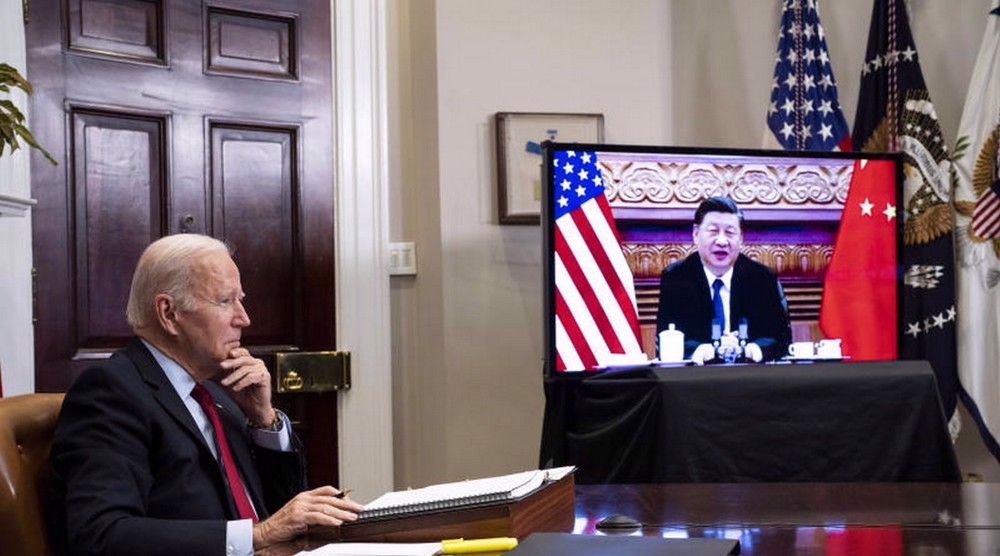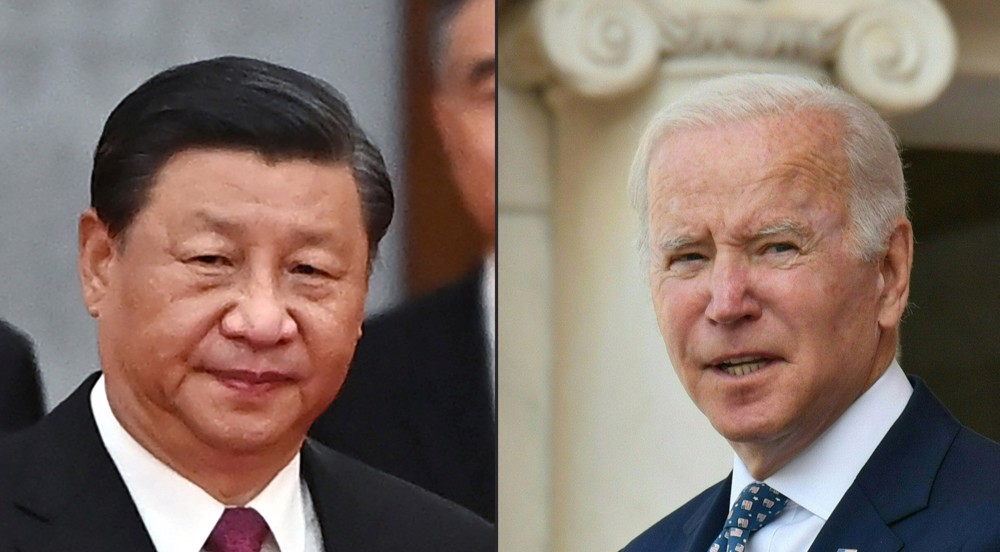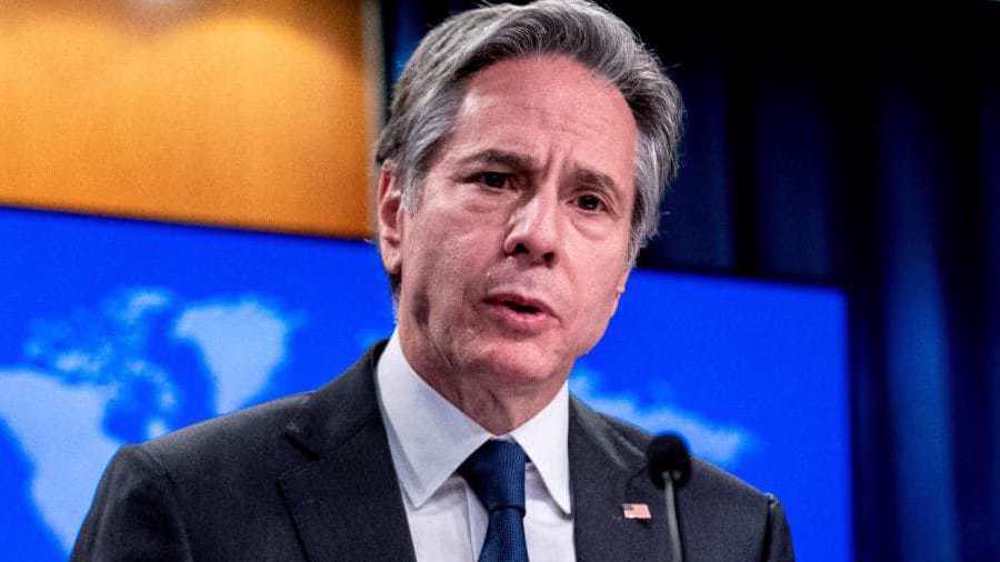Chinese expert warns the US on changes to Taiwan policy
A Chinese political commentator warned the Biden administration not to change US policy towards Chinese Taipei (Taiwan), saying it “could have a grave impact on both US-China bilateral relationship, as well as the cross-strait security situation.”
Yilun Zhang, who is a Research Associate at the Institute for China-America Studies based in Washington, DC, made the remarks in an interview with Press TV on Friday after President Joe Biden claimed that the United States still abides by the policy of “strategic ambiguity” toward Taiwan.
Biden's comment on Tuesday about continued US “strategic ambiguity” on Chinese Taipei came a day after he made waves by saying in no uncertain terms that the US would defend Taiwan in the event of a Chinese attack.
Zhang said, “This is not the first time that the Biden administration is sending mixed signals with regard to the issue of Taiwan.”
“In fact, President Biden made a similar comment and said unequivocally that the US is committed to defending Taiwan should China attack last October. The White House, just like this time, clarified that the US will still stick to its One-China policy and maintain its strategic ambiguity. What happened last October and this time were pretty much identical. President Biden makes strong comments and the White House clarifies the statements and puts down any potential speculation. That said, because it is the second time such a thing happens, it is logical to speculate that these confusing signals are part of the US salami-slicing approach to subtly change its position on Taiwan,” he stated.
“The One China Policy, as serious as it may sound, is in fact a rather high ceiling. American policymakers and diplomats may now figure that it is convenient to achieve a lot under this ceiling without actually changing long-time US policies and positions. But it is worth warning that over-focusing on these quick and short achievements will open many dangerous precedents that could have a grave impact on both US-China bilateral relationship, as well as the cross-strait security situation,” the analyst said.
Biden’s remarks reportedly angered Beijing, which has warned the US repeatedly over its increased support for Taiwan. Chinese Foreign Ministry spokesman Wang Wenbin on Monday said China deplored Biden’s comments and said the US should refrain from sending the wrong message “to avoid causing grave damage to bilateral relations.”
Zhang said that “it is also worth noting that domestic political consideration may also play a considerable part in the Biden administration's actions on Taiwan.”
“Since taking office, the Biden administration has made very little progress in engaging with China. The confusing comments on Taiwan may be an easy way for the Biden administration to show the American people that he is tough on China. The division of work is pretty clear here, Biden plays this tough big politician figure, while the White House and the State Department clarify US intentions to prevent over-intensifying US relationship with China,” he said.
“The issue of Taiwan has always been a skeleton in the closet for the US-China bilateral relationship. But until recently, it has never become an elephant in the room for the benign development of the bilateral relationship. The issue only grew into a key point of controversy and tension in recent years when Beijing and Washington began to point at each other accusing the other side of altering the status quo and destabilizing cross-strait,” he said.
“Washington’s strategic shift to focus on the Indo-Pacific region and defining China as a strategic competitor has definitely made the issue of Taiwan more complicated. China's growing power in the West Pacific has naturally changed the power dynamic in the region,” the analyst said.
“That being said, tensions over the issue of Taiwan should not have reached their current level if Beijing and Washington are fully willing to communicate with each other to eliminate strategic distrust and engage in building guardrails for the bilateral relationship. Although top diplomats of the two countries held multiple dialogues over the past 15 months, the concerns over Taiwan have never been a key area of focus on the American side,” he said.
“While the Chinese readouts on each of these dialogues spent at least 1/2 to 2/3 of the paragraphs expressing Beijing's long-time position on the issue of Taiwan and China's concerns, the American ones rarely mention Taiwan or Beijing's position. The two countries should realize that to this current point, the issue of Taiwan should be seriously discussed to clarify intentions. Taiwan should be treated just many other fundamental differences between Beijing and Washington that the two sides choose to agree to disagree, not as political leverage to cause pain or press the other side to play the bad guy,” he stated.
China has sovereignty over Chinese Taipei, and under the "One China" policy, almost all world countries recognize that sovereignty. The US, too, recognizes Chinese sovereignty over the island but has long courted Taipei in defiance of Beijing.
“Last but not least, while the issue of Taiwan has grown significantly into a major roadblock in US-China bilateral relationship, overemphasizing the differences between Beijing and Washington and locking the world's most important bilateral relationship in a tiny strait would be a grave mistake,” said Zhang.
“Policymakers and diplomats on both sides should be aware of many other key issue areas, be it competitive or cooperative, including bilateral trade, people-to-people exchange, climate change, and nuclear nonproliferation. These issues have greater implications for US-China ties as well as for the rest of the world. The development of the future US-China relationship should not be defined by Taiwan, but by China and the US,” he concluded.
US Secretary of State Antony Blinken has called for vigorous competition with arch-foe China to preserve the existing global order but hastened to add that Washington did not seek a "Cold War."
In a speech at George Washington University, the top US diplomat outlined the Biden administration's approach as "invest, align, compete”, dubbing Beijing as the “most serious long-term challenge to the international order", despite the recent focus on the war in Ukraine.
"China is the only country with both the intent to reshape the international order -- and, increasingly, the economic, diplomatic, military and technological power to do it," Blinken said.
He emphasized that China remains the Biden administration’s top priority despite the support and aid the US is providing Ukraine in its conflict with Russia.
US weighs sanctions against Spanish ships over blocked arms shipment to Israel
Medicine shortages in Gaza reach alarming levels amid Israeli siege: Health ministry
Nigeria says 130 schoolchildren abducted by terrorists freed
Israel to ‘permanently’ arm 10,000 reserve forces after al-Aqsa Flood lessons: Report
VIDEO | Press TV's news headlines
VIDEO | No war for oil: Londoners protest US bullying Venezuela
VIDEO | French MP demands inquiry into arms sales to Israel
Iran-EAEU coop. paves way for 'powerful region': President Pezeshkian













 This makes it easy to access the Press TV website
This makes it easy to access the Press TV website